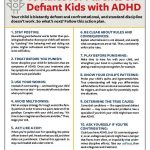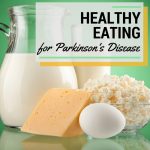
methysergide – oral
WARNING: The extended use of methysergide has been known to cause abnormal thickening of heart valves and of the lining of the lungs/abdomen. Methysergide should only be used for frequent and severe headaches and under close medical supervision. If you experience chest pain, difficulty breathing, backache, trouble urinating, unusual tiredness, numbness or tingling in the hands or feet, or fast heartbeat, contact your doctor immediately.
USES: This medication prevents or reduces the pain and frequency of severe recurring headaches, such as migraines and cluster headaches. It is used as a second-line treatment after other options have failed. Methysergide narrows blood vessels in the head, reducing the throbbing effects of vascular headaches. This medication should not be used to treat acute migraine attacks.
HOW TO USE: Take this medication at night with food or milk to prevent stomach upset. The dosage and frequency will be determined by your doctor based on your condition and response to treatment. Start with a low dose and gradually increase it to minimize side effects. Take the medication regularly at the same time each day for maximum benefit. If you experience headaches that occur in clusters, use this medication only during the cluster period. Follow your doctor’s instructions carefully. Very serious side effects may occur with prolonged use, so do not take methysergide for more than 6 months continuously. If you need to discontinue the medication, your doctor will guide you through a gradual dose reduction over several weeks. Methysergide typically starts working within 1 to 2 days. Consult your doctor if your condition does not improve after 3 weeks.
SIDE EFFECTS: Possible side effects include nausea, vomiting, diarrhea, dizziness, drowsiness, stomach upset, heartburn, trouble sleeping, and flushing. If any of these side effects persist or worsen, contact your doctor or pharmacist. Serious but rare side effects include dizziness upon standing, tingling/pain/coldness in the fingers/toes, loss of feeling in the fingers/toes, muscle pain/weakness, unusual weight gain, vision changes, confusion, and slurred speech. Seek immediate medical attention if you experience these severe side effects or signs of scarring/thickening of the lungs, heart, or abdomen/pelvis. Allergic reactions are rare but can occur. Discontinue use and seek medical attention if you develop a rash, itching/swelling, severe dizziness, or trouble breathing. This is not a complete list of side effects. If you experience any other unusual effects, inform your doctor or pharmacist. In the US, report side effects to the FDA at 1-800-FDA-1088. In Canada, report side effects to Health Canada at 1-866-234-2345.
PRECAUTIONS: Before taking this medication, inform your doctor or pharmacist if you are allergic to methysergide or other ergot alkaloids or if you have any other allergies. This product may contain inactive ingredients that can cause allergic reactions or other problems. This medication should not be used if you have certain medical conditions, including autoimmune disease, blood vessel disease, uncontrolled high blood pressure, heart disease, severe liver disease, certain lung diseases, severe kidney disease, certain types of migraine, or urinary blockage. Inform your doctor of your medical history, especially if you smoke, have diabetes, controlled high blood pressure, stomach/intestinal ulcers, or if you are pregnant or breastfeeding. This medication can cause dizziness or drowsiness, so avoid activities that require alertness until you know how it affects you. Do not smoke while using this medication. It is not recommended for use in children. Methysergide can harm unborn babies, so it must not be used during pregnancy. Use reliable forms of birth control while taking this medication. This drug may pass into breast milk and have undesirable effects on a nursing infant, so breastfeeding is not recommended while using this drug.
QUESTION
DRUG INTERACTIONS: Inform your doctor or pharmacist about all the medications you are taking. Some medications can interact with methysergide and cause serious side effects. Avoid using it with drugs that affect liver enzymes, other ergot alkaloids, smoking/nicotine products, and sibutramine. If you also take "triptan" migraine drugs, consult your doctor on how to time the doses to minimize risk. Tell your doctor or pharmacist about all prescription and nonprescription/herbal products you use, especially diabetes drugs, nitrates, and SSRI antidepressants. Check the labels of all your medicines for ingredients that may increase your heart rate or blood pressure. This is not a complete list of possible interactions, so keep a list of all your medications and share it with your doctor and pharmacist.
OVERDOSE: If you suspect overdose, contact your local poison control center or emergency room immediately. Symptoms of overdose include mental/mood changes, hyperactivity, sweating, rapid heartbeat, and blue/cold extremities.
NOTES: Do not share this medication with others. Be aware of triggers such as certain foods/beverages, food additives, and lifestyle patterns that may cause migraine headaches. Consult your doctor for more information.
MISSED DOSE: If you miss a dose, take it as soon as you remember. If it is close to the time for the next dose, skip the missed dose and resume your regular schedule. Do not double the dose to catch up.
STORAGE: Store at room temperature, away from sunlight and moisture. Keep all medicines out of the reach of children and pets. Do not flush medications down the toilet or pour them into a drain unless instructed to do so. Properly discard expired or unused medication. Consult your pharmacist or local waste disposal company for guidance on proper disposal methods.
DRUG INTERACTIONS: Your doctor or pharmacist may already be aware of any possible drug interactions and may be monitoring you for them. Do not start, stop, or change the dosage of any medicine before checking with your doctor or pharmacist first.This drug should not be used with the following medications because very serious interactions may occur: drugs affecting liver enzymes that remove methysergide from your body (e.g., azole antifungals such as ketoconazole, itraconazole, voriconazole, macrolide antibiotics such as erythromycin, clarithromycin, HIV drugs such as delavirdine, efavirenz, indinavir, nelfinavir, ritonavir), other ergot alkaloids (e.g., ergonovine), smoking/nicotine products (e.g., patches, gum), sibutramine.If you also take "triptan" migraine drugs (e.g., sumatriptan, rizatriptan), you will need to separate your "triptan" dose from your dose of this medication to reduce the risk of serious side effects. Ask your doctor how long you should wait between your doses of these drugs.If you are currently using any of these medications listed above, tell your doctor or pharmacist before starting this medication.Before using this medication, tell your doctor or pharmacist of all prescription and nonprescription/herbal products you may use, especially: drugs for diabetes (e.g., insulin, tolbutamide), nitrates (e.g., isosorbide, nitroglycerin), SSRI antidepressants (e.g., fluoxetine, fluvoxamine).Check the labels on all your medicines (e.g., cough-and-cold products, diet aids, other migraine medications) because they may contain ingredients that could increase your heart rate or blood pressure. Ask your pharmacist about the safe use of those products.This document does not contain all possible interactions. Therefore, before using this product, tell your doctor or pharmacist of all the products you use. Keep a list of all your medications with you, and share the list with your doctor and pharmacist. OVERDOSE: If overdose is suspected, contact your local poison control center or emergency room immediately. US residents can call the US National Poison Hotline at 1-800-222-1222. Canada residents can call a provincial poison control center. Symptoms of overdose may include: mental/mood changes, hyperactivity, sweating, rapid heartbeat, blue/cold arms, hands, legs, and feet. NOTES: Do not share this medication with others.Certain foods/beverages or food additives (e.g., red wine, cheese, chocolate, monosodium glutamate, alcohol) as well as some lifestyle patterns (e.g., irregular eating/sleeping habits, stress) may cause a migraine headache. Avoiding these "triggers" may help decrease the frequency of migraine headaches. Consult your doctor for more details. MISSED DOSE: If you miss a dose, take it as soon as you remember. If it is near the time of the next dose, skip the missed dose and resume your usual dosing schedule. Do not double the dose to catch up. STORAGE: Store at room temperature away from sunlight and moisture. Do not store in the bathroom. Keep all medicines away from children and pets.Do not flush medications down the toilet or pour them into a drain unless instructed to do so. Properly discard this product when it is expired or no longer needed. Consult your pharmacist or local waste disposal company for more details about how to safely discard your product.


